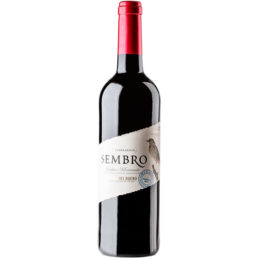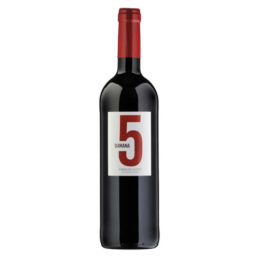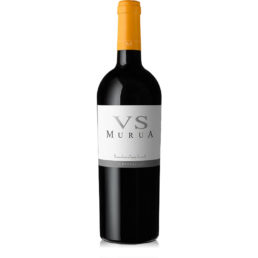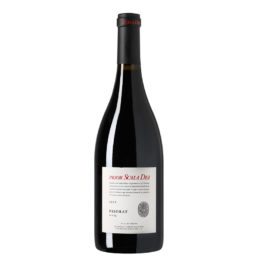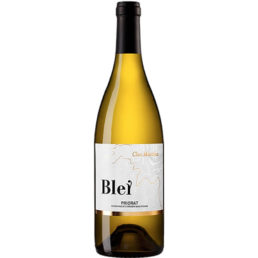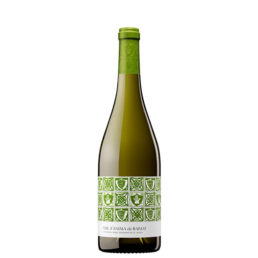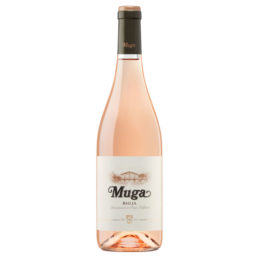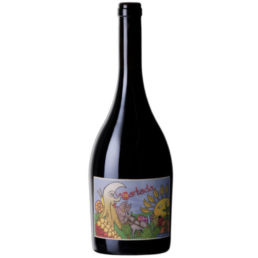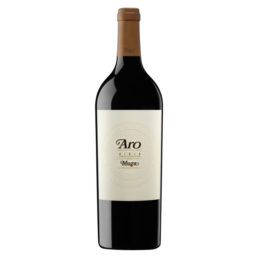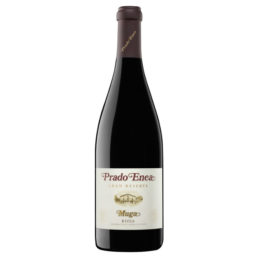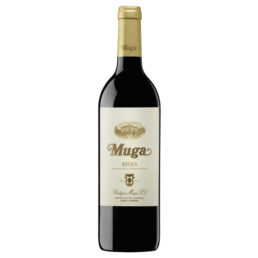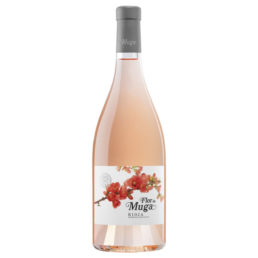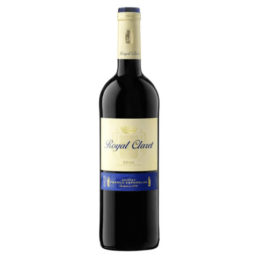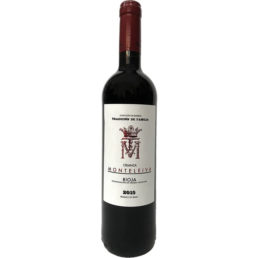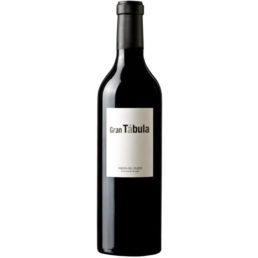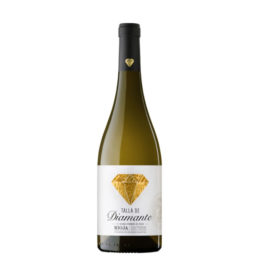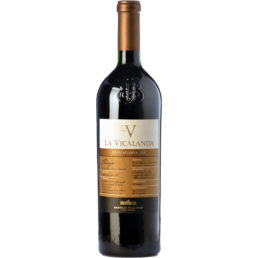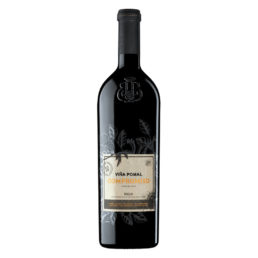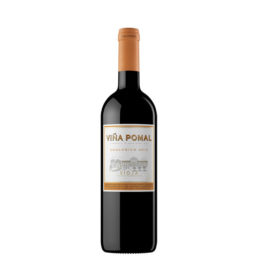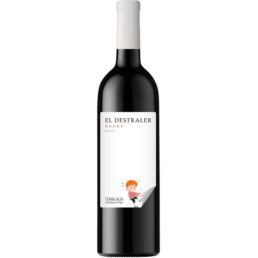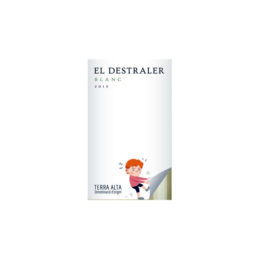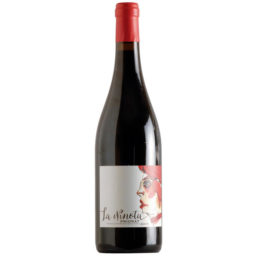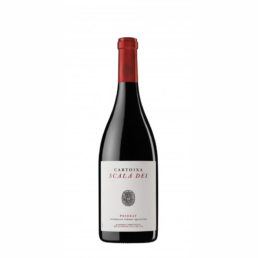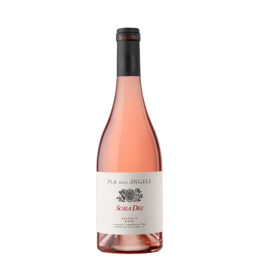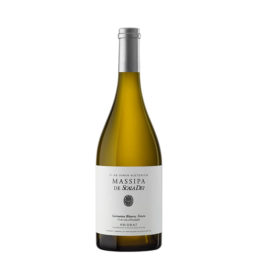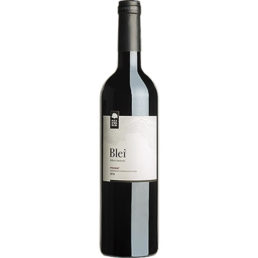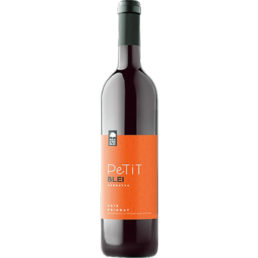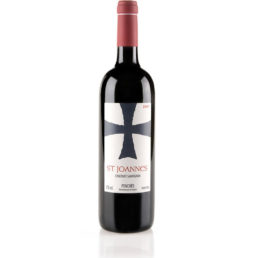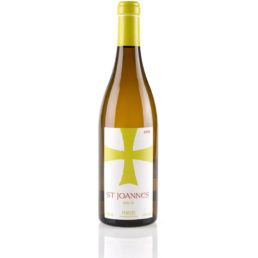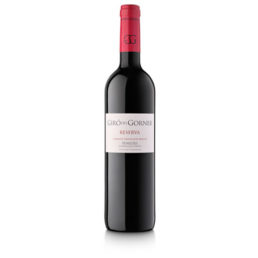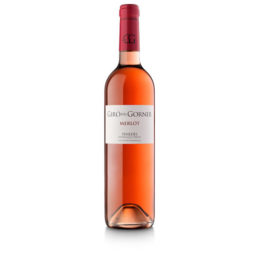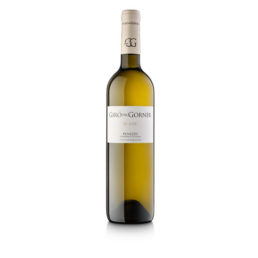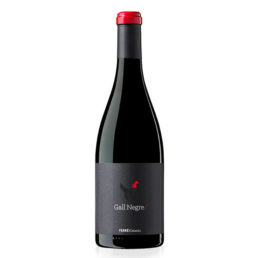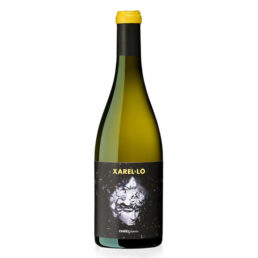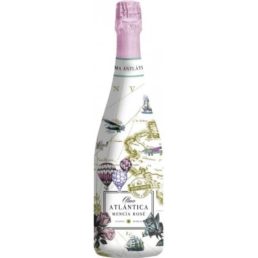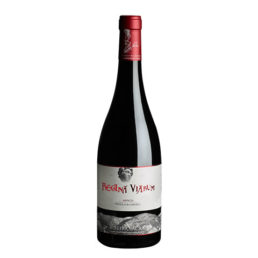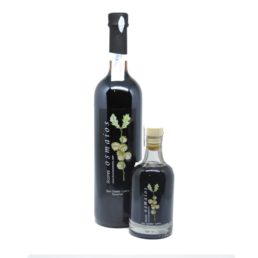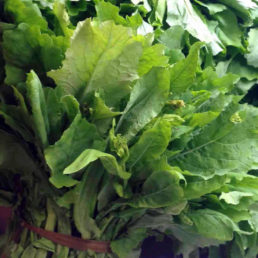VINIFICATION Pre-maceration in cold during 24 hours. Pressing to racking to a tub where it is kept other 24h. Fermentation in new French oak barrels (Q. Petrea) of 300 liters, fine grain and medium toast light. Parenting 6 months with lees and "battonage" journal. Stabilization in cold, the natural way (seasonal), not induced. Bottled: 1 year in the bottle.
AWARDS GOLD medal INTERNATIONAL WINE CHALLENGE 2016.DOP Care
-
White wine Raimat Solana
Raimat has a continental climate with very strong and contrasted: it's very hot during the day and the evenings are very cool. This phenomenon gives the grapes a very intense. Therefore, the sun bathes the vineyards of Raimat is one of the principales the protagonists of our farm and Raimat Solana, a white wine smooth and creamy, with floral notes and white fruit, it represents.DEVELOPMENT (VINIFICATION)The grape harvest is during the night; fact that allows it to reach low temperatures, to avoid oxidation unwanted.After pressing, the wort passes through a heat exchanger of cold to get a temperature lower than 10 C to make a clarification of static and at the same time preserve the primary aromas. The must clean is decanted into a stainless steel tank with cooling system for performing a controlled fermentation to 16 ºC during 2 the 3 weeks. After the alcoholic fermentation, trasegamos wines (always with carbon dioxide gas in the tanks to prevent oxidation). The two varieties of grapes D. O. Costers del Segre are vinified separately. Once the fermentation and clarified wines, we proceed to develop the blend.PAIRINGRaimat Solana is the perfect complement to dishes with birds, as chicken or turkey. Also with fresh salads, fish of all kinds, shellfish, rice and pasta.PRIZES ADD 2016SILVER MEDALMUNDUS VINI - 2017 -
Sembro Magnum tinted wine
It is a wine with a fruity character, that tries to express the primary characteristics of the Tempranillo variety from our own Farm. It is reinforced with a small step-by-wood is usually the 4 months. It is a fruity wine, sweet and juicy in the mouth, but at the same time cool, with a few sweet tannins, mature and that make it very nice, envelope and without hardness tannic.Foster
4 months in new barrels and one year French oak 300 liters.
Fermentation
During 10 days at temperatures of 25 ° C.
Time of Maceration
7 days with their skins
-
Red wine Damana 5 2017 Magnum
Production:250.000 bottlesElaborationDestemmed and maceration at controlled temperature. Alcoholic fermentation and malolactic in stainless steel tanks at a controlled temperature.Foster:He remained 5 months in oak barrels.Awards91 points Peñin guide -
Sembro Magnum tinted wine
It is a wine with a fruity character, that tries to express the primary characteristics of the Tempranillo variety from our own Farm. It is reinforced with a small step-by-wood is usually the 4 months. It is a fruity wine, sweet and juicy in the mouth, but at the same time cool, with a few sweet tannins, mature and that make it very nice, envelope and without hardness tannic.Foster
4 months in new barrels and one year French oak 300 liters.
Fermentation
During 10 days at temperatures of 25 ° C.
Time of Maceration
7 days with their skins
-
US vino tinto great Murua 2017
Expressive and personal, VS it is the last blend created by Bodegas Murua. The winery continues its philosophy of Rioja purely craftsman, but looking, at the same time, a modern style that inspires a wine full of freshness and fruit undertones.
The VS de Murua is a wine that is velvety, that illustrates very well the balanced blend of the fruit of our grapes in the aroma of mount alava minty and floral.
Foster of 16 months in French oak barrels (30%) and american (70%). -
Scala Dei Prior Magnum tinted wine
Scala Dei Prior is a wine with personality, that breathes tradition and authenticity, since that allows to know better the richness of the D. O. Q. Priorat. It is elaborated with grapes from different small plots, carefully selected. This care durantand all the processing result to a Crianza wine is well structured and full of aromas that will transport you to the vineyards of the Priorat.DEVELOPMENT (VINIFICATION)After defining the vineyards that are going to go for this wine, the grapes previously selected in the estates arrive at the winery in small boxes 16 kg, where all the grapes is reviewed thoroughly by the warehouse staff as they pass through the selection table, vibratory installed at the entrance of the winery. After de-stemming and crushing, fermented at controlled temperature to preserve the aromas of ripe fruit. Later, the breeding takes place in barrels (French oak 80% and american 20%) during a year. This type of ageing is completed in bottle for more than a year for the wine to reach the market in optimal time of consumption.VINEYARD (VITICULTURE)Grapes from varieties of historical of the area and of the vineyards older (between 35 and 60 years old), planted on the terraces and in the typical “costers” licorella from Priorat. The terrain, the driving of the plants and above all, the desire to obtain the best grapes, makes the grape harvest is done manually only. The vineyards are situated between the 500 and the 800 meters of altitude, which favours the maturation is slow and regular and enables a variety of shades to combine heights and different orientations of the vineyards. All this makes this wine unique.AWARDS94 POINTS GUÍA GOURMETS 201890 POINTS GUIDE PEÑÍN 2018GOLD MEDAL MUNDUS VINI - 201890 POINTS ROBERT PARKER 2018GOLD MEDAL EXPOVINA - 2017SILVER MEDAL BACCHUS - 2017 -
White wine Mas d'en Blei – Clos Martina Magnum
PRODUCTION 4.000 bottles.VITICULTURE Grapes are produced only of the finca Mas d'en Blei. Vineyards on terraces of slate (licorella). Vintage hand. Selection in table. Development separated by varieties. -
White wine Flight of the soul by Raimat Magnum
Vol d Ànima, formerly known as Ànima de Raimat, it is the culmination of our first 100 years of history. The tiles that dress up your tag are the same that look in the walls of the castle of Raimat from 1935, after the reform carried out by the architect Rafael Masó. This creation represents the soul of Raimat: a young red wine, modern, fresh, medium-bodied, with notes of cocoa, developed with the 3 red varieties that best express the terroir cellar: Cabernet Sauvignon, Tempranillo and Syrah.DEVELOPMENT (VINIFICATION)It starts with a grape harvest at night to preserve the primary aromas of the fruit. When the grapes reach the cellar, is cooled to a temperature of 15 ºC. A part of the grape is vinifica looking for a profile of the wine more fruity and fresh. Is achieved by keeping the temperature low for 24-48h and fermenting later 25 ºC. The other part of the grape is fermented at a higher temperature for greater texture and complexity in the wine. These two styles came together we offer a young red wine, modern, with lots of fruit and structure in the mouth.PAIRINGVol d Ànima de Raimat Red wine can accompany well to dishes of hunting, mushrooms, meats and legumes, as well as sausages and rice. It is a wine that is very versatile. -
Rosé wine Muga
Ring, Prado Enea and Torre Muga are among the best red wines of this country. Less well-known to the public is the excellent work carried out by the family Muga to when you develop your pink, one of the best that can be found in the D. O. Ca. Rioja: Flower of Muga Rosé 2017, mainly produced with grapes of garnacha. While the bodega Muga used for the red wines the garnachas grown in the foothills of the montes Obarenes, with a good ripening of the fruits by exposure to the sun, for the pink use bunches of garnacha from the hillside opposite, where a lower stroke allows for better freshness and preserve the fruit notes tangy and fresh, features of this Muga Rosado. The wine was fermented in small tanks made of wood and remained four months growing up with the fine lees and expanding its virtues. Elaboration After 12 hours of maceration, the wine ferments for 15-20 days in small containers of wood between 16- 18ºC. During 3 months maintain and work the fine sediments that magnify and enhance their virtues and organoleptic. Later we stabilized and cold filtered and bottled. Pairing with tartar of fish, ceviches, salads, folders, rice... -
Vino tinto La Coartada Great Choice
THE ALIBIRed Premium developed by Eladio Piñeiro in his mansion-cellar of Alentejo
After an intense search for five years, in 2004, we located a vineyard 35 years with very poor soils of slate, drop-offs and soft South exposure. Bringing more than eight in transition to biodynamic, in this period of time has been easy this transition, since the plant protection treatments to which it was subjected were almost non-existent. The vineyard is trellised, at a height of soil is relatively low, the pruning is done in Guyot double and its expansion vegetative is small, located on the northern boundary-the centre of the Alentejo, which has a very special microclimate, it is protected to the south-southeast, by the Serra da Ossa, to the north, for the Sierra de San Mamede and to the west by the Sierra of São Miguel.
-
Red wine Muga – Ring 2009
Muga Aro 2009 it is made with a 70% Tempranillo and a 30% Graciano from vineyards selected of Bodegas Muga. The harvest 2009 it is characterized by very good, since it was cool Atlantic climate, factor that helped the grapes to mature slowly and progressive. The name wants to do homage to the wine capital of la rioja, Haro. The grape harvest was selected and meticulous to just get the grapes that were in perfect state of maturation. Once in the winery, the grapes were put in tanks of wood where maceraron and fermented for three weeks in a natural and spontaneous with indigenous yeasts and without temperature control. Subsequently, the red Rioja Muga Aro breeding in oak barrels, 18 months in new French oak and 6 months in deposits of oak, all of them self produced. Before bottling we made a slight clarification with egg white natural. Year after year, the critical wine-national and international give scores for Muga Aro very good. Awards 95 Parker points 95 points Guide Peñín -
Red wine Muga – Prado Enea Gran Reserva 2010
The large reserves are wines made to last for a long time, and icons of excellence. Prado Enea Gran Reserva 2010 it is made by Muga, with the last grapes enter the wine cellar to ensure an even ripening perfect, and it is born of a vintage exceptional: the 2010 (rated Excellent). Great aging potential. Elaboration Next to the grapes Torre Muga, the grapes for Prado Enea are always the last to enter the winery. With this we ensure an optimal maturity. The grape is fermented is always in tanks of oak 10.000 Kg. of capacity without temperature control or addition of yeasts. The maceration is variable but can last up to twenty days. The ageing of this wine is twelve months in deposits of oak 16.000 liters, thirty six months in oak barrels (minimum), and thirty six months (minimum) in the bottle. After the aging is performed by a light clarification with egg whites. Pairing This is a wine that can pair with stews, meats and even use it as a cup. Production 90.000 bottles Awards 97 by Robert Parker (The Wine Advocate) 94 by Guía Peñín de los wines of Spain -
Red wine Muga – Muga Crianza Magnum 2014
The Magnum of Muga Crianza 2014 it is a wine made with the varieties Tempranillo (70%), Grenache (20%), Mazuelo and Graciano (10%). Vinification and ageing Fermentation with yeast indigenous deposits of oak. Parenting during 24 months in casks made with oak trees selected in our cooperage. Prior to bottling is carried clarification with egg white fresh. Once bottled undergo a process of fine-tuned over twelve months in our cellar, as a minimum. Pairing Magnum Muga Crianza is a wine ideal for dishes of red meat, hunting, roasted, poultry, white meat, serrano ham and sausages, cured cheeses and blue cheeses. -
Wine Flower of Muga Rosé
Ring, Prado Enea and Torre Muga are among the best red wines of this country. Less well-known to the public is the excellent work carried out by the family Muga to when you develop your pink, one of the best that can be found in the D. O. Ca. Rioja: Flower of Muga Rosé 2017, mainly produced with grapes of garnacha. While the bodega Muga used for the red wines the garnachas grown in the foothills of the montes Obarenes, with a good ripening of the fruits by exposure to the sun, for the pink use bunches of garnacha from the hillside opposite, where a lower stroke allows for better freshness and preserve the fruit notes tangy and fresh, features of this Muga Rosado. The wine was fermented in small tanks made of wood and remained four months growing up with the fine lees and expanding its virtues. Elaboration After 12 hours of maceration, the wine ferments for 15-20 days in small containers of wood between 16- 18ºC. During 3 months maintain and work the fine sediments that magnify and enhance their virtues and organoleptic. Later we stabilized and cold filtered and bottled. Pairing with tartar of fish, ceviches, salads, folders, rice... -
Red wine – Royal Claret
DEVELOPMENT
Performed the alcoholic fermentation and concluded, the deacidification malolactic fermentation the wine goes to the barrels of white oak (Ohio) medium toast. The aging of wine is interrupted every six months to make the traditional racking barrel to barrel. Raised in american oak barrels during 5 months.PAIRING
The Wine Royal Claret is perfect to accompany, rice, post, vegetables, vegetables, white meats or in sauce, red meat, semi-mature cheeses.AWARDS
- Recommended, International Wine Challenge, United Kingdom
- Excellent quality/price, Wine & Spirits, United Kingdom
- 83 points, Guía Peñin, Spain
- Recommended, Decanter World Wine Awards 2009, United Kingdom
- Recommended, Philipson & Soderberg , Sweden
- 87 points, Wine Spectator, USA
-
Red wine Marqués de Tomares – Monteleiva Crianz
PairingVeal, lamb, milk-fed veal, poultry. -
Red wine Large Blank
Production 4000 bottles Elaboration Selection table for bunches, de-stemming and further selection of grains. Maceration at controlled temperature, alcoholic fermentation in vats of wood 50 hl and 100 hl. Malolactic fermentation in vats of French oak. Foster He remained 18 months in oak barrels and 6 months in a tub of French oak. Awards 92 points Peñin guide -
Red wine Damana 5
Production:250.000 bottlesElaborationDestemmed and maceration at controlled temperature. Alcoholic fermentation and malolactic in stainless steel tanks at a controlled temperature.Foster:He remained 5 months in oak barrels.Awards91 points Peñin guide -
Red wine Sembro 2018
It is a wine with a fruity character, that tries to express the primary characteristics of the Tempranillo variety from our own Farm. It is reinforced with a small step-by-wood is usually the 4 months. It is a fruity wine, sweet and juicy in the mouth, but at the same time cool, with a few sweet tannins, mature and that make it very nice, envelope and without hardness tannic.Foster
4 months in new barrels and one year French oak 300 liters.
Fermentation
During 10 days at temperatures of 25 ° C.
Time of Maceration
7 days with their skins
-
Red wine Murua VS 2017
Expressive and personal, VS it is the last blend created by Bodegas Murua. The winery continues its philosophy of Rioja purely craftsman, but looking, at the same time, a modern style that inspires a wine full of freshness and fruit undertones.
The VS de Murua is a wine that is velvety, that illustrates very well the balanced blend of the fruit of our grapes in the aroma of mount alava minty and floral.
Foster of 16 months in French oak barrels (30%) and american (70%). -
Wine white semi-sweet Bodegas Franco Españolas – Diamond cut
Vineyards Its peculiarity lies in the varieties that compose it: Viura and Chardonnay. Traditionally, the whites from Rioja have been based mostly on the variety Viura. However, the adoption of new varieties by the Regulatory Council, has allowed to investigate new possibilities, new assemblies, and how not to, able to carry out projects that convey new sensations. To Size Diamond you have selected different plots starting from the premise that the age of the vines of Viura must be superior to 30 years old. Strains that are rooted in clay-limestone soils of the north-western Rioja. The planting of Chardonnay is located in the Rioja media, at an altitude of 690 meters. The soil is clayey-sandy. Elaboration Pre-maceration in cold, it starts the fermentation of both varieties in order to extract the most aromatic complexity as possible. It paralyzes the fermentation when the sweetness level, acidity and structure are adequate to obtain a wine of high quality.Pairing Appetizers, Fish, seafood, rice, desserts, cold dishes. -
Red wine – The Vicalanda Gran Reserva 2010
The Vicalanda Gran Reserva, maximum expression of the "terroir" one of the most privileged areas of the D. O. Ca. Rioja, Haro. The Vicalanda Gran Reserva is a red wine pioneer "wines of high expression", crafted from a selection of las best grapes from our own vineyards. The name of The Vicalanda comes in your home on a small farm of 10,5 hectares the property of Bodegas Bilbaínas. DEVELOPMENT (VINIFICATION) Gentle crushing-destemming, vatting and fermentation with a long maceration. En total, 2 years of ageing in casks bordeaux (225 l) French oak Allier new (70%) and medium toast. Minimum 3 years of ageing in bottle bordeaux. The Vicalanda Gran Reserva is a red wine that represents the ultimate expression of the know-how of the cellar. The best ageing in oak and bottle dota of maturity, finesse and elegance of the Tempranillo, respecting the identity of an area emblematic.VINEYARD (VITICULTURE) The vineyards from which comes the Vicalanda are located in a privileged enclave of the municipality of Haro (Rioja Alta) and comes from our best farms, Crow 4, Vicuana and Zaco, of the D. O. Ca. Rioja. In its most, it comes from vineyards facing the south, which maximizes the exposure to the sun and helps ripening and more intense. The soils are calcareous and cascajosos and therefore poor, deep and well-drained. The vineyards are planted in glass and are grown under principles of sustainable agriculture. Vineyards between 25 and 35 years of age,whose returns do not exceed the 3.500 kg/ha.PAIRINGThe Great Reserve of The Vicalanda harmonizes perfectly with main courses or first strong. As for example: cheeses, deli, inlaid, soups and stews; meats of all kinds, especially the hunting, tailgating, etc.AWARDS96 POINTS GUIDE PROENSA 201695 POINTS GUÍA GOURMETS 201694 POINTS GUIDE PEÑÍN 201694 POINTS GUIDE PEÑÍN 201590 POINTS ROBERT PARKER 2015SILVER MEDAL DECANTER WORLD WINE AWARDS - 2014SILVER MEDAL INTERNATIONAL WINE & SPIRIT COMPETITION - 2014SILVER MEDAL INTERNATIONAL WINE CHALLENGE - 2014 -
Red wine – Viña Pomal Commitment
Viña Pomal, the flagship of Bodegas Bilbaínas, presents a new limited edition and more special that evokes their values, those who claimed and those that are flagged: commitment, source, tradition and the land from where everything is born. This is Viña Pomal Commitment, the first wine in the world aged in oak barrels tattooed. Viña Pomal has wanted once again to reaffirm her indebtedness with the classical values and has made it neither more nor less than by the art of the tattoo. A route by 4 Spanish cities in which 6 tattoo artists of national and international renown have been interpreted, recording fire in oak barrels, their values of life. Of these barrels is now Viña Pomal Commitment, an author's wine red unique and of limited production (5.000 bottles). DEVELOPMENT (VINIFICATION) The five red grape varieties of Rioja are blended in this wine to enhance the virtues of tradition and the strength of character. The elegance of the Tempranillo, the exquisite rusticity of the Graciano, the expressive charm of Garnacha, the spicy nuances as genuine Maturana and power rugged Mazuelo. A powerful combination, a game full of boldness, their commitment to the origin, and a wine unique and original, Viña Pomal Commitment. The casks in which it has been elaborated Viña Pomal Commitment have been marked to fire with our values of life. Our source, tradition, land and commitment lie forever on the wood of French and american oak. A powerful combination, a game full of boldness, a commitment to our origin. "We want to claim back the commitment with the values of the whole life.", Alejandro Lopez, winemaker of Bodegas Bilbaínas.VINEYARD (VITICULTURE) For the production of this wine has resorted to the five varietals of Rioja, that provide a differential note in the assembly. Each one of them, looking for its unique features, it is cultivated in different soils and in different areas that make up the region of Rioja. Therefore, we've had Tempranillo soil clay-calcareous Haro, from the best plots of Viña Pomal, Grenache vineyards in altitude in the terrain cascajoso Rioja Media, Maturana tinta and Mazuelo of the area of Rioja Baja, looking for their perfect maturation, and Graciano of alluvial soils of the Rioja Alta area.PAIRINGBy your profile, complex recommended wine pairing Vina Pomal Commitment with stews of winter (stews, cooked, fabada) and also with meats (preferably hunting) well made. Its aspect of transgression also makes it ideal for international cuisine, both the mexican hot as the exotic thai or the sophisticated French. -
Red wine – Viña Pomal Ecological
The eco-friendly family of Viña Pomal. The responsible management and sustainable each of our plots is a sign of identity that characterizes the vineyards of Bodegas Bilbaínas. Red wine Viña Pomal Green is the ultimate expression of a lockjo focused on the environment. DEVELOPMENT (VINIFICATION)Viña Pomal Ecological is characterized by a vinification traditional: after de-stemming and crushing, takes place the alcoholic fermentation with a duration of two weeks, in which the wine acquires a soft structure, nice and with great intensity of fruit. 6 months of ageing in new american oak casks, we provide a complexity and maturity necessary to complete the expression of this red wine.VINEYARD (VITICULTURE)The grapes come from 17 hectares of vineyard certified organic located in Haro. Its cultivation is done with the maximum respect for the environment, using only natural products authorised for organic viticulture. The responsible management and sustainable each of our plots, it is a sign of identity that characterizes the vineyards D. O. Ca. Rioja from Bodegas Bilbaínas. Viña Pomal Green is the ultimate expression of a job-focused environment.PAIRINGViña Pomal Ecological harmonizes perfectly with light dishes such as rice dishes, cheeses, pates, stews, vegetables, fish... -
Red wine Celler Germans Balart – The destraler negre
DEVELOPMENTFermentation at a controlled temperature of 22 ° C in stainless steel tanks. PAIRING Pasta, rice, cured cheeses and red meats. -
White wine Celler Germans Balart – The destraler blanc
DEVELOPMENTDry white wine. Fermentation at a controlled temperature of 18ºC in stainless steel tanks. -
Red wine Cal Grau – The Ninota
The Ninota Vins is the new project of Company Vineyards Iberian in Catalonia. The Ninota arises from the concern to produce wines of reduced production where the common denominator is house the different appellations of origin of Catalonia: Priorat, Montsant, Terra Alta, Penedés. We talk about wines that are a true reflection of their soils, environments and weather, putting flag a great respect for the variety. Each wine will have your style and personality, offering a great added value. Fran Vernet, winemaker Cal Grau, is the culprit of ensuring that each wine has its own style and a own personality well defined, offering a huge value added very personal. One of the successes of Vernet and the Osborne family it is The Ninota 2015. Belonging to the D. O. Q. Priorat, whose grapes main are the garnacha and cariñena, that dwell in soils on mountain of slate and licorella, with a small contribution of syrah grapes. Vinification and ageing: 4 months in barrel. -
Red wine, Scala Dei Cartoixa
This author's wine is call Cartoixa gives an account of the continuity of the link with the vineyards who looked after the monks in the Middle Ages. Because Scala Dei Cartoixa is not only the wine more emblematic of the cellars of Scala Dei; it is also a milestone in the history of wine of the Priorat to have been the first wine to be bottled under the D. O. C. Priorat. This Crianza red is made with a selection of the best grapes native to the area: Garnacha and Cariñena.DEVELOPMENT (VINIFICATION)This wine was elaborated from selected grapes of the best plots of the D. O. Q. Priorat. Each parcel was fermented separately. The maceration lasted about 3 weeks depending on the variety and the grape to achieve a wine with the typicity of each of the vineyards. Parenting 18 months in foudres of 1.400 liters, bocois of 500 liters and deposits of cement 2.100 liters. By having different origins of Garnachas, different heights and different soils, these need a different treatment for your foster, because each vineyard is aged separately in which we believe that is the best measure for expressing your terroir.VINEYARD (VITICULTURE)Grapes from varieties of historical of the area, the Garnacha and Cariñena, and from old vines of around 60 years old, planted on the terraces and in the typical “costers” llicorella of the Priorat. The terrain, the driving of the plants and, above all, the desire to obtain the best grapes, makes the grape harvest is done manually only. The vineyards are situated between the 500 and the 800 meters of altitude. Each year we choose those who have given the best grapes to ferment separately, pampering the extraction, taking care of the expression of the fruit and taking each step during their preparation to maintain the expression of the quality that had the grape at the time of collection.AWARDS94 POINTS TASTING.COM (JERALD O KENNARD) 2017 -
Rosé wine, Scala Dei – Pla dels Àngels
Another of the faces of Grenache. Pla dels Angels is the first pink of Cellers Scala Dei, prepared by their winemaker, Ricard Rofes, which has managed to develop this fragrant, fresh and delicate rosé wine from a selection of grapes from dand vineyards high on clay soils. Has been selected as one of the 10 best rosé of the world 2015 “The Global Rosé Masters”, competition organized by the prestigious magazine Drink Business.DEVELOPMENT (VINIFICATION)To preserve the aromatic characteristics of the Garnacha, it cools the grapes on their arrival warehouse up to the 2 ºC, is despalilla, and after 3 hours of maceration with skins starts bleeding in deposit to get this pale color and attractive. Subsequently desfanga and it is the fermentation as if it were a white wine. After the fermentation is in tank for about 4 months, until comes the time of bottling.VINEYARD (VITICULTURE)Grapes from the high areas of Scala Dei, the D. O. Q. Priorat, on soils argilosos that retain the acidity and, therefore the freshness of the grapes at the time of the grape harvest. Vineyards young and old, predominantly orientations north and east, located between the 500 and the 600 meters of height.AWARDS91 POINTS YEARBOOK OF WINES (THE COUNTRY) 201890 POINTS GUIDE PEÑÍN 201890 POINTS GUIDE 365 DAYS (LIVE THE WINE) 2018 -
White wine, Scala Dei Massipa
Massipa is the reissue of one of the wines from the cellar that had been developed in the past with the name of “White Scala Dei”. With this wine, want to show the fresh face of the Garnacha Blanca in the Priory in conjunction with the low Chenin blanc. Comes from a single vineyard historical, The Massipa, planted with white varieties. A white sleek and subtle that has demonstrated a good capacity for ageing.DEVELOPMENT (VINIFICATION)We harvested the Grenache and Chenin: the Grenache is at the point of maturation that we consider it appropriate to, and the Chenin helps us to maintain the acidity. Already in the cellar, are pressed together, the two varietals, is desfanga the wort and is transferred to a concrete tank where fermentará at a controlled temperature of 16-18 ° C with indigenous yeasts. Once finished the fermentation, is transferred to remove the lees thick, and subtract just fine. During the first two months of ageing is done a battonage per week and remains in the deposit; from the two months starts static ageing with lees on the bottom of the foudre.VINEYARD (VITICULTURE)This is a wine of a single vineyard, The Massipa, located just to the side of the vine of Masdeu, with east orientation, to 650 meters of height and clayey soil red with inlays of gypsum. The vineyard has 45 years and is the only one with white grapes of Cellers Scala Dei. A road divided the vineyard in half: to one side there is the White Grenache and the other of the Chenin, planted by the Sr. Peyra at the end of the 80 with the arrival of varietal French at the Priorat.AWARDS93 POINTS ROBERT PARKER 201890 POINTS YEARBOOK OF WINES (THE COUNTRY) 2018 -
Red wine, Scala Dei Prior
Scala Dei Prior is a wine with personality, that breathes tradition and authenticity, since that allows to know better the richness of the D. O. Q. Priorat. It is elaborated with grapes from different small plots, carefully selected. This care durantand all the processing result to a Crianza wine is well structured and full of aromas that will transport you to the vineyards of the Priorat.DEVELOPMENT (VINIFICATION)After defining the vineyards that are going to go for this wine, the grapes previously selected in the estates arrive at the winery in small boxes 16 kg, where all the grapes is reviewed thoroughly by the warehouse staff as they pass through the selection table, vibratory installed at the entrance of the winery. After de-stemming and crushing, fermented at controlled temperature to preserve the aromas of ripe fruit. Later, the breeding takes place in barrels (French oak 80% and american 20%) during a year. This type of ageing is completed in bottle for more than a year for the wine to reach the market in optimal time of consumption.VINEYARD (VITICULTURE)Grapes from varieties of historical of the area and of the vineyards older (between 35 and 60 years old), planted on the terraces and in the typical “costers” licorella from Priorat. The terrain, the driving of the plants and above all, the desire to obtain the best grapes, makes the grape harvest is done manually only. The vineyards are situated between the 500 and the 800 meters of altitude, which favours the maturation is slow and regular and enables a variety of shades to combine heights and different orientations of the vineyards. All this makes this wine unique.AWARDS94 POINTS GUÍA GOURMETS 201890 POINTS GUIDE PEÑÍN 2018GOLD MEDAL MUNDUS VINI - 201890 POINTS ROBERT PARKER 2018GOLD MEDAL EXPOVINA - 2017SILVER MEDAL BACCHUS - 2017 -
Red wine Mas d'en Blei – Liber
PRODUCTION limited to 2.500 bottles.VITICULTURE Grapes of coastal llicorella of the finca Mas d'en Blei, with south-west orientation. Controls are carried out for maturation to proceed to the harvest in its optimal point, that is done manually in boxes of 10kg. After a first manual selection, is desraspa and performs a second selection grain by grain. The complete formulation up to the coupage is performed by separating varieties and plots.VINIFICATION At the entrance in the cellar is done in a pre-maceration pre-cool the grapes during 24 hours. Long fermentation of 20 to 24 days with “pegeage” manual journal, using indigenous yeasts. Parenting 14 months in French oak barrels (Q. Petrea) of 225 liters, fine grain and medium toast-light. Maintained a minimum of 18 months in the bottle to get a good point of maturity. It is a wine with a character of breeding, due to its complexity. This is a wine technician who resists a lot of time in the bottle and can be consumed in excellent condition in the following 5 years old.
ACKNOWLEDGEMENTS
Medal of SILVER in DECANTER World Wine Awards 2015.
93 points Peñin Guide 2017
-
Red wine Mas d'en Blei – Petit Blei
PRODUCTION Limited to 6.000 bottles.VITICULTURE Grapes coming from the vineyards in coastal licorella of the finca Mas d'en Blei with orientation to the south-west. Controls are performed of ripening before the harvest to achieve your optimum point. The harvest is performed manualment in boxes 10-15 kg. After the first selection, drift, and makes a second selection grain by grain. Development separated by variedadeVINIFICATION Wine with its own style elaborated with autochthonous varieties.Pre-maceration in cold of the grapes during 24h. Long fermentation, of 20 to 24 days, with indigenous yeasts and “pegeage” manual journal. Parenting 6 months in French oak barrels (Q. Petrea) of 225 liters, fine grain and medium toast light.
-
White wine Mas d'en Blei – Clos Martina
PRODUCTION 4.000 bottles.VITICULTURE Grapes are produced only of the finca Mas d'en Blei. Vineyards on terraces of slate (licorella). Vintage hand. Selection in table. Development separated by varieties.VINIFICATION Pre-maceration in cold during 24 hours. Pressing to racking to a tub where it is kept other 24h. Fermentation in new French oak barrels (Q. Petrea) of 300 liters, fine grain and medium toast light. Parenting 6 months with lees and "battonage" journal. Stabilization in cold, the natural way (seasonal), not induced. Bottled: 1 year in the bottle.
AWARDS GOLD medal INTERNATIONAL WINE CHALLENGE 2016. -
Red wine Sant Joannes Cabernet Sauvignon
Elaboration: Grape varietals separate. Cabernet Sauvignon fermented in a conical tank with stirred. Ojo de liebre, fermented in small deposit with batonnage traditional, without pressing. Aging in barrels (Nevers St Joannes). Pairing: Pairs perfectly with light dishes of meats of all kinds, rices and the best tables of sausages. Sublime with pasta and savory pastries as the de recapte. -
White wine Sant Joannes Xarel.what
Elaboration: Manual harvest of the last days of September. Clarification for one night (12h.) to 13ºC. Fermentation in stainless steel tanks at a controlled temperature (15ºC-17ºC). Stirring of lees daily during the winter. Coupage before bottling with wine remained in French oak barrels, corresponding to the previous year (approx. 10%), add elegance feature. -
Red wine Giró del Gorner Booking 2012
To produce this red wine reserve same grapes of the vineyard Cirerers, of the variety cabernet sauvignon and the vineyard Box, merlot. Vintage mature and maceration, slow, slow aging in oak barrels.Elaboration:
The fermentation takes place at controlled temperature, 25/30ºC, with maceration with their skins, in order to favour the formation of aromas and color in the first fermentation.
Foster:
Parenting 12 months in oak barrels, staying a minimum of 2 years in the bottle.
Pairing:
Due to its complexity, is perfect for taking with all types of red meat and hunting. Ideal companion in rice dishes and stews, as well as to drink with strong cheeses.
-
Rosé wine Giró del Gorner
The complex elaboration of a wine rosé does not do honor to their recognition. Difficult it is to find the perfect balance of color and aromas. Harvesting the grapes the grapes in the right moment of maturation, early morning when it is cooler, to be able to macerarla with their skins and extract the color and aromas typical of the variety, maintaining this delicate cherry color. We appreciate your joyful color and red fruit in the mouthElaboration:
Maceration between 8-18 hours of grape mash at a low temperature, 8ºC. The fermentation takes place between 10 and 15 days, low temperature, with the aim of fostering the training of primary aromas typical of the variety.
Pairing
His character fresh and cheerful accompanies perfectly cured meats, folders, meat light, poultry, as well as oriental food.
-
White wine Giró del Gorner
The wine Blanc Penedès of Turned the Gorner is a classic Penedès. A wine that aims to recover the wines of our ancestors, developed basically with the typical varieties, the Penedès: Macabeu, Xarello and Parellada. There are No more secrets that few vineyards pampered, a few selected grapes, a gentle pressing, time and enjoy it.Elaboration:
Smooth extraction of the flower must. The fermentation has gone by very slowly, between the 15 and 18ºC.
Pairing: Perfect to accompany appetizers, salads, fish and seafood, cheeses and light white meats -
Red wine Ferré i Catasús – Gall Negre
"I am an ode to the Penedés region, I am the pride, I am a beauty discreet, I am the prestancia, I am distinction and elegance, soy Gall Negre de Ferré i Catasús.” Gall Negre es nuestra interpretación de la fuerza de la variedad vinícola que el Penedés tiene : we present a 100% Merlot, foster, valued and settled in our region. Elaboration: Manual harvest in boxes of a few 15 kilos, pre-selection in the same vineyard. Once in the winery are encuba in a stainless steel tank where we do a cold maceration to extract all the primary aromas and, after the maceraciónfermentación with stirred manuals. Subsequently it will be introduced in French oak barrels of second year of 225 L to obtain a complexity higher. Pairing: The complexity of this wine gives it a power of longevity and a perfect pairing with game dishes and stews of red meat. -
White wine Ferré i Catasús – Xarel.what
“I'm from here, my country is Catalonia, live with feet on earth and head in the stars, calling the gods. I am the stability and the challenge at the same time, I am the Xarel-lo from Ferré i Catasús. " The Xarel-lo de Ferré i Catasús is meticulously elaborated with the native and main variety of the Penedés that gives it its name. (consult add) Elaboration: Manual harvest in boxes of a few 15 kilos, pre-selection in the same vineyard. Once at the winery, is inserted in stainless steel tanks until mid-fermentation. Then we went to French oak barrels of 225L. Once the fermentation is finished, working the lees by the technique of “beating” (stirring of the lees) to get a smooth longer. Pairing: Pairs perfectly with all kinds of fish, rice, post, or cheese. .













